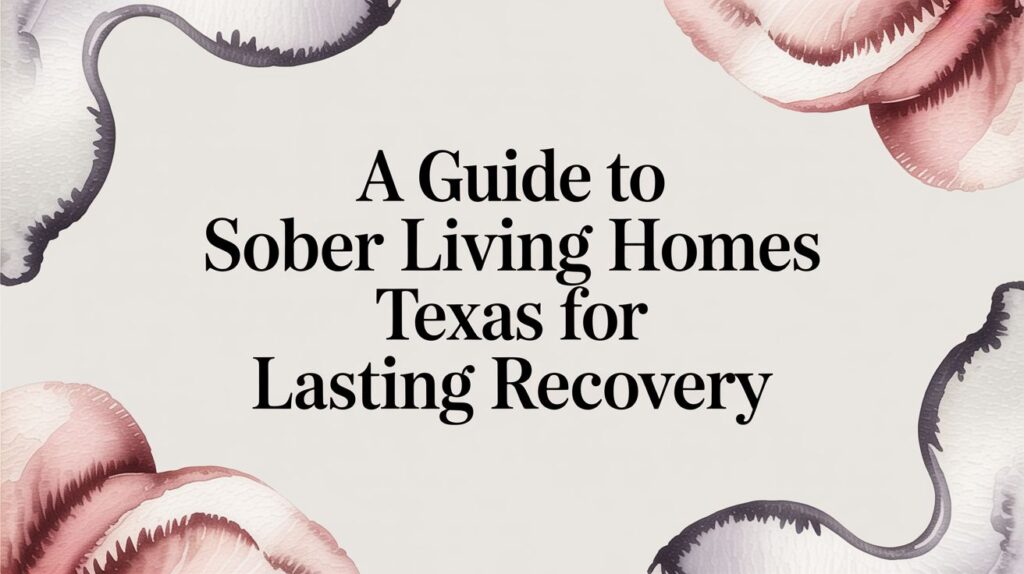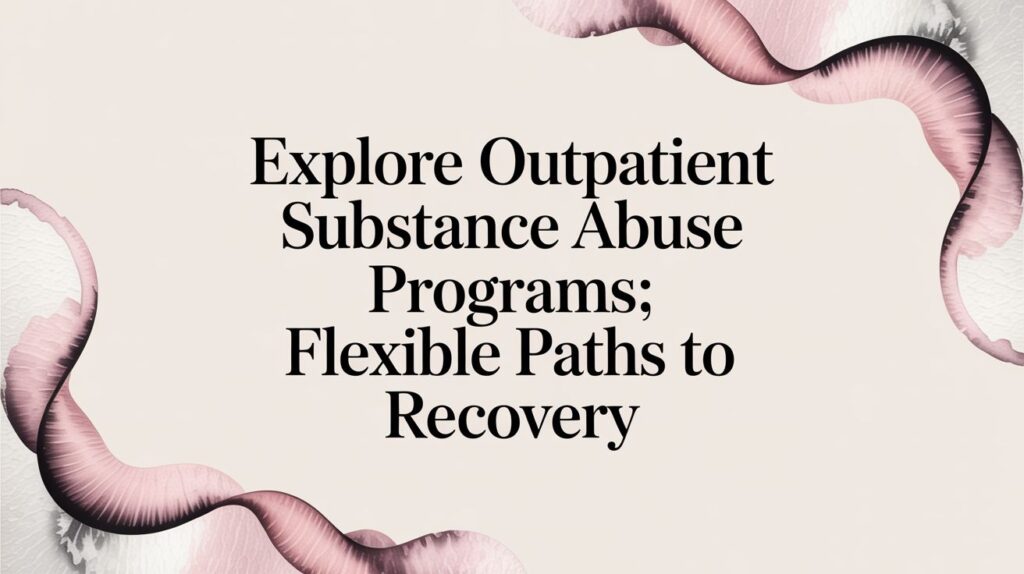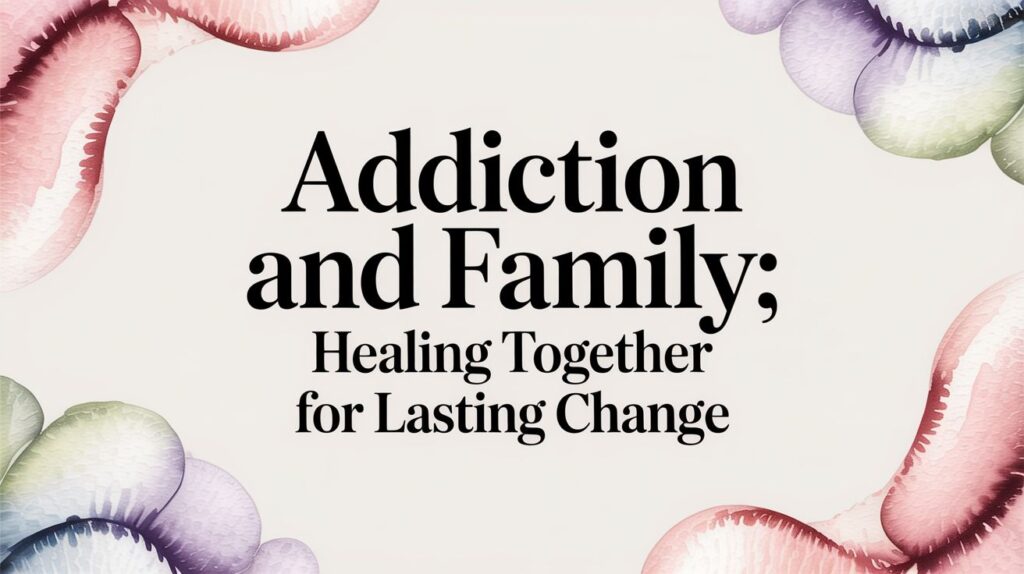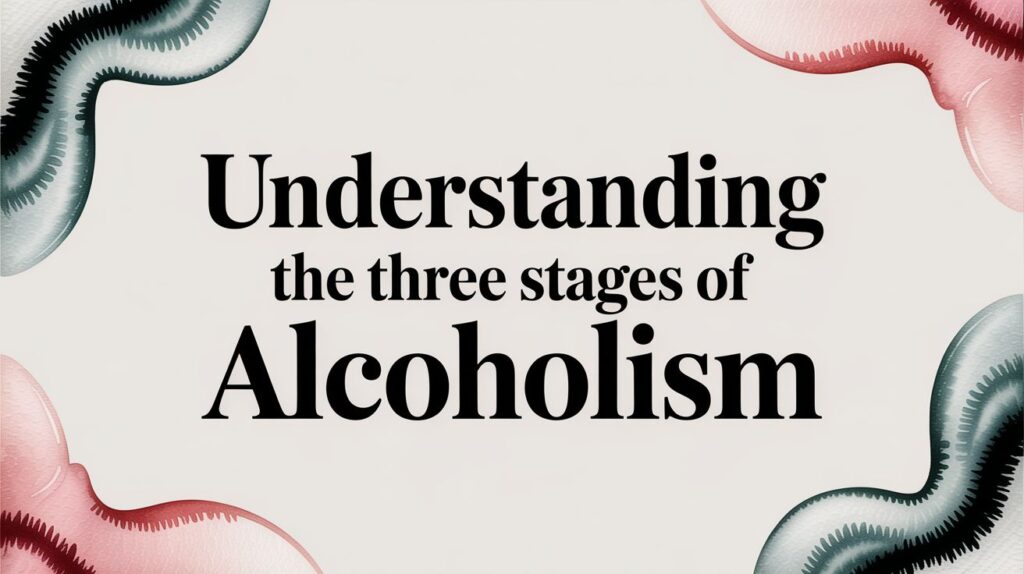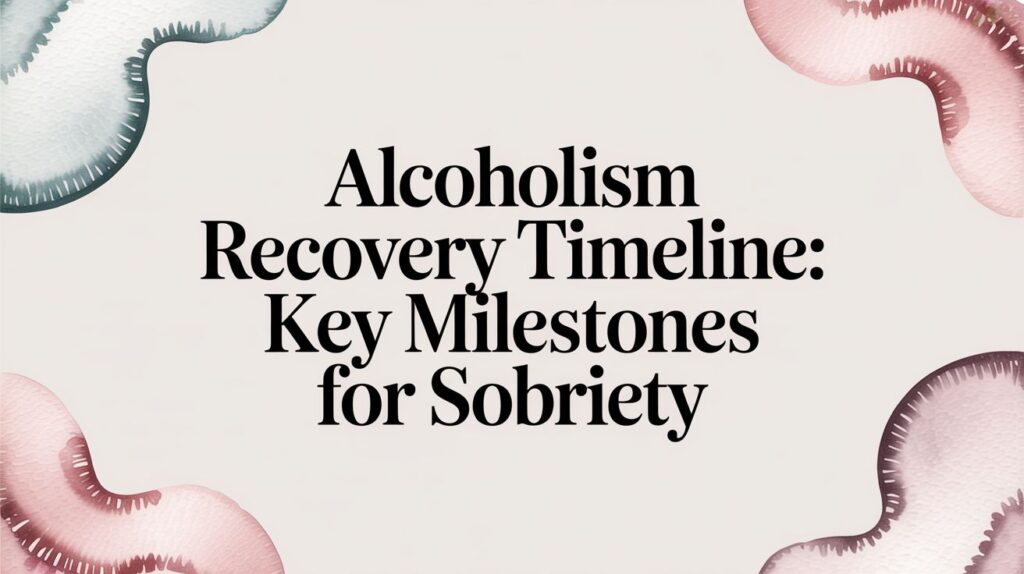Typing “sober living near me” into a search bar is a huge step. It’s a real commitment to building a new, stable life. The right home isn't just a place to sleep; it’s a structured, substance-free environment that helps you lock in the healthy habits you learned in treatment while getting support from people walking the same path.
Think of it as the bridge between the intensive care of rehab and the full independence of living on your own. It's a critical phase, and finding the right fit makes all the difference.
Starting Your Search for the Right Sober Living Home

Starting this search can feel like a lot, but a little bit of planning goes a long way. Instead of just mindlessly scrolling through online listings, the best move is to figure out what you actually need to succeed in early recovery. This self-check-in is your most powerful tool. It turns a wide, overwhelming search into a focused mission.
Define Your Personal Needs First
Before you even look at a single house, take a moment to picture what your ideal supportive environment would feel like. This goes way beyond just the location; it’s about the culture, the rules, and the overall vibe of the home.
To get started, consider these key areas:
- Location and Accessibility: Do you need to be on a bus line for work or school? Would you feel safer and more focused in a quiet suburban neighborhood, or does being in a more urban area feel right?
- Community Atmosphere: Are you someone who thrives in a smaller, tight-knit group, or would a larger home with more residents feel better? Think about the age range and general energy you'd be most comfortable with.
- Level of Structure: Some homes are very strict, with tight curfews and mandatory daily meetings. Others offer more freedom and independence. Be honest with yourself about how much accountability you truly need right now.
Getting clear on these points first will help you filter your options and save a ton of time and energy. It also gets you ready to ask smart, targeted questions when you start reaching out to different homes. The link between stable housing and overall well-being is undeniable, which is why it’s so important to see how comprehensive mental health and addiction services can support this entire process.
To make this easier, use this simple checklist to nail down your priorities.
Your Personal Sober Living Checklist
Defining these key factors first will make your search for a sober living home more focused and effective.
| Factor | Why It Matters for Your Recovery | Key Questions to Consider |
|---|---|---|
| Structure Level | Defines daily accountability, rules, and expectations that support sobriety. | Do I need strict curfews and mandatory meetings, or more independence? |
| Community Fit | The people you live with become your immediate support system. | Do I prefer a smaller, family-style home or a larger, more diverse community? What age range feels right? |
| Location | Proximity to work, school, meetings, and transportation impacts daily stress. | Is it easy to get to my job? Are 12-step meetings nearby? Do I feel safe in this neighborhood? |
| Specialized Support | Some homes cater to specific needs like dual diagnosis or gender-specific care. | Does this home have experience with co-occurring disorders? Is a men's or women's-only house better for me? |
| Cost & Insurance | Financial stress is a major relapse trigger; clarity on costs is crucial. | What are the monthly fees? What’s included? Do they accept my insurance or offer payment plans? |
Taking 15 minutes to think through these points will give you a clear blueprint for your search.
Using Trusted Networks to Find Options
Once you know what you’re looking for, you can start your search with confidence. A simple online search is a decent starting point, but you'll often get much better, more reliable results by tapping into trusted networks. These resources have usually done some of the vetting for you, which provides a nice layer of quality control.
Your current or former treatment center is one of the best places to start. The counselors and case managers there often have long-standing relationships with reputable sober living homes in the community. They know your clinical history and can point you toward environments that will truly support your recovery plan.
A strong sober living home isn't just a place to live; it's an active community dedicated to mutual support. It provides the accountability and camaraderie essential for navigating the challenges of early sobriety, helping you build a foundation for lasting change.
Another fantastic resource is certified sober living directories. Organizations like the National Alliance for Recovery Residences (NARR) set clear standards for quality, safety, and ethics. Searching their databases means you’re looking at homes that have already met important criteria. These networks do a lot of the initial legwork, letting you focus on what really matters: finding the perfect fit for your personal journey.
What a Supportive Sober Living Community Feels Like
The physical building is just a shell. The real value of a sober living home—the thing that makes recovery stick—is the community humming inside its walls. It's not just about rules on a whiteboard; it’s a feeling. It's the shared purpose, genuine peer support, and mutual respect you can sense the moment you step through the door.
When you're searching for "sober living near me," this communal vibe should be at the very top of your checklist. A healthy environment creates a space where residents feel safe enough to be vulnerable, celebrate the small victories, and call each other out without judgment. It’s a place where you’re truly seen by people who get it because they’re on the exact same path.
Gauging the Atmosphere During a Visit
There's only one way to truly assess a home’s culture: visit in person. Forget the brochure for a minute and just observe. Pay close attention to how residents talk to each other and interact with the house manager. Do they seem engaged, friendly, and respectful? Or are they withdrawn, isolated, and just going through the motions?
Look for the telltale signs of a thriving community:
- Active Common Areas: Are people actually talking in the living room or cooking together? Or is everyone hiding out in their own rooms?
- Clear Communication: Is there a community board with schedules, notes from the last house meeting, and maybe some upcoming events? It shows organization and engagement.
- House Manager Presence: Is the manager visible, involved, and clearly respected by the residents? A good manager sets the tone for the whole house.
A strong sense of community is built on purpose, not by accident. It’s forged in structured activities like mandatory house meetings, where residents hash out everything from chore schedules to personal struggles. Exploring different group topics for addiction recovery gives you a good idea of how these meetings can build that crucial camaraderie.
Key Questions to Ask About Community Life
Don't be shy during your tour. This is your life we're talking about. Ask direct questions to both the house manager and any residents you get a chance to speak with. Their answers will tell you more about the day-to-day reality than any website ever could.
Try asking things like:
- "How are conflicts between residents usually handled here?"
- "What do you guys do for fun together as a house?"
- "Can you tell me what a typical house meeting is like?"
A truly supportive home provides a structured, trigger-free environment where you can practice new life skills. It’s where you form strong bonds, avoid isolation, and receive meaningful support through the ups and downs of early recovery.
A great community also helps residents tackle co-occurring mental health challenges head-on. For many, learning effective anxiety recovery steps is just as important as staying sober.
This need for supportive environments is part of a larger cultural shift. The 'Sober Curious' movement is gaining serious traction, with nearly half of all Americans (49%) actively trying to drink less. The trend is especially strong among younger adults, which shows a growing demand for healthy, substance-free living. Finding a home that embraces this positive, forward-thinking culture is a game-changer.
Why House Rules and Structure Are Your Allies
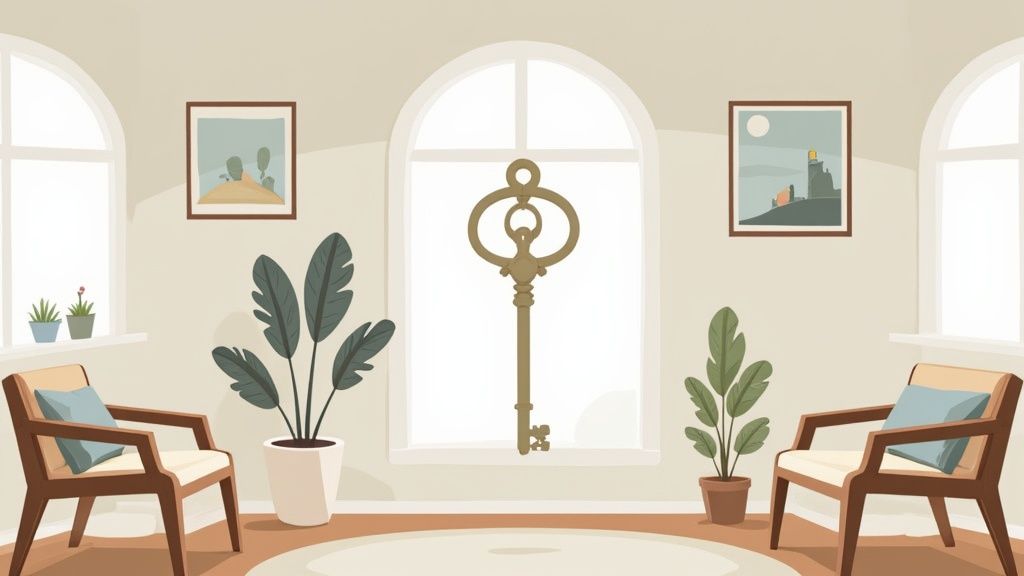
Let’s be honest—the thought of moving into a house with a bunch of rules can feel a little jarring. When you’re just getting free from addiction, the last thing you want is to feel controlled. But here’s the thing: this kind of structure isn’t about punishment. It’s about building a predictable, safe space where you can finally catch your breath and let healthy new habits take root.
Active addiction is chaos. A well-managed sober living home is the exact opposite. It replaces that unpredictability with a steady rhythm, giving you the external framework you need to rebuild your own internal discipline, one day at a time. This consistency frees up your mental energy to focus on what really matters—healing.
The Purpose Behind Common House Rules
Every single rule in a quality sober living home has a specific job to do, and that job is always tied to supporting recovery. Think of them as guardrails, keeping everyone on the road and moving in the same direction. When you’re looking up “sober living near me,” understanding the why behind these rules is key.
You'll almost certainly run into policies like these:
- Strict Curfews: These are in place to encourage healthy sleep patterns and cut down on the temptation of late-night situations that could put your sobriety at risk.
- Mandatory Meetings: Regular house meetings and 12-step groups are the bedrock of community. They keep you connected to a network of people who actually get what you’re going through.
- Regular Drug and Alcohol Testing: This isn't about trying to catch you messing up. It’s about protecting the safety of the entire house. Random testing is a promise to every resident that the environment will remain 100% substance-free—a non-negotiable for recovery.
These aren’t just arbitrary limits. They are hands-on tools that help you practice accountability and rebuild the life skills you need to stay sober for the long haul. For a deeper dive, check out our complete guide to sober living house rules and the reasons they work.
A stable living arrangement with other sober people in recovery adds a powerful layer of accountability. The built-in structure fortifies you to successfully reach your recovery goals by staying on track.
Finding the Right Level of Structure for You
Not all sober living homes are created equal. Some are highly regimented, while others offer more autonomy. The trick is to be brutally honest with yourself about what you need right now.
Someone in the first raw weeks of recovery might do best in a high-structure home with zero-tolerance policies and a full schedule. On the other hand, a person with a solid year of sobriety under their belt might need a place that offers more independence, allowing them to balance work or school with their recovery.
It’s like learning to ride a bike. At first, you need training wheels (high structure) to feel safe and find your balance. Once you’ve got the hang of it, you can take them off and enjoy more freedom (lower structure). The goal is to find a home that matches your current skill level.
A good house manager is the glue that holds this all together. They aren't just a landlord; they're a mentor responsible for enforcing the rules with fairness and compassion. When you tour a home, pay close attention to how the manager interacts with the residents. Their ability to lead with both strength and empathy is one of the clearest signs of a healthy, supportive environment.
Let's get practical about the financial side of your "sober living near me" search. Budgeting is a huge part of creating stability in recovery, and let's be honest, financial stress is a well-known trigger. Figuring out the costs upfront empowers you to find a supportive, affordable home without adding a bunch of pressure to your journey.
The price tag on sober living can swing pretty widely depending on the location, the amenities, and how much support is built into the program. Think of it kind of like renting an apartment—you'll have monthly fees and usually a security deposit. The big difference, of course, is that these payments secure your spot in a structured, substance-free environment that's designed to protect your sobriety.
What Is Typically Included in the Cost
When a sober living home gives you a price, you need to get clear on exactly what that number covers. Most of the time, the monthly fee bundles in the essentials:
- Rent and Utilities: This covers your bed and access to shared living spaces, along with basics like electricity, water, and Wi-Fi.
- Household Supplies: Think toilet paper, cleaning supplies, and paper towels—the stuff you need to keep the house running smoothly.
- Access to Support Staff: Part of the cost goes toward having an experienced house manager on-site or at least a phone call away.
Some homes, however, might charge extra for things like random drug testing, rides to meetings, or specific household perks. Always, always ask for a detailed breakdown so you don't get hit with surprises later on.
A lot of people assume health insurance will pay for sober living rent. But because these homes are considered a residential setup and not a clinical treatment, insurance typically does not cover the monthly fees. It's a common mix-up, so it's good to know that going in.
Planning Your Sober Living Budget
Before you commit, make sure you understand the payment policies. Some homes will want the first month's rent and a deposit right upfront, while others might have more flexible payment plans. If you need help, don't be afraid to ask about scholarships, financial aid programs, or sliding-scale fees. Many of the best homes are truly committed to helping residents find a way to make it work.
The demand for these supportive homes is definitely growing. The global market for sober living was valued at $6.27 billion and is expected to keep climbing. This just shows how many more people are realizing how vital these homes are for building a solid foundation in recovery. You can read more about the growth of the sober living industry and its market trends.
Finding a home that fits your budget is every bit as important as finding one with the right community vibe. Being open and honest about your financial situation allows the staff to work with you. At Altura Recovery, we have strong partnerships with reputable sober living homes and can help you navigate these financial talks, connecting you with options that fit both your recovery needs and your wallet.
How to Choose and Prepare for Your New Home
You've done the tours, asked the hard questions, and narrowed down the list. All that time spent searching for the right "sober living near me" has led you to this moment. The final choice is yours. Remember, this isn't about finding a perfect home—it's about finding the right home for you, right now.
Go with your gut. Checklists and pros-and-cons lists are helpful, but you can't ignore the feeling you got when you walked through the door. Where did you feel the safest? The most understood? That intuition is your mind processing hundreds of tiny cues about the environment and the people in it. Trust it.
Making Your Final Decision
To avoid getting overwhelmed, lay out your top two or three options side-by-side. Create a simple comparison chart focusing only on the factors that will make or break your long-term success.
- Community Vibe: In which house did the connection with the residents and manager feel most genuine? A strong, supportive community is your lifeline in early sobriety, providing the accountability and friendship you need.
- Structure and Rules: Which home’s rules align best with your current needs? Be brutally honest with yourself. Do you need strict oversight to stay on track, or will a bit more independence help you grow?
- Location and Logistics: Which location makes your daily life easier? Think about your commute to work, school, or support meetings. The less daily stress you have, the more energy you have for your recovery.
- Cost and Value: Which option fits your budget without adding a mountain of financial stress? See this as an investment in your future, not just another bill to pay.
The right sober living home isn’t just a safe place to land after treatment; it’s a launchpad. It’s a structured, supportive environment where you can practice new life skills, form healthy connections, and build a solid foundation for the future you deserve.
Once you’ve made your choice, it’s time to start the formal intake process. The infographic below shows the typical steps involved.
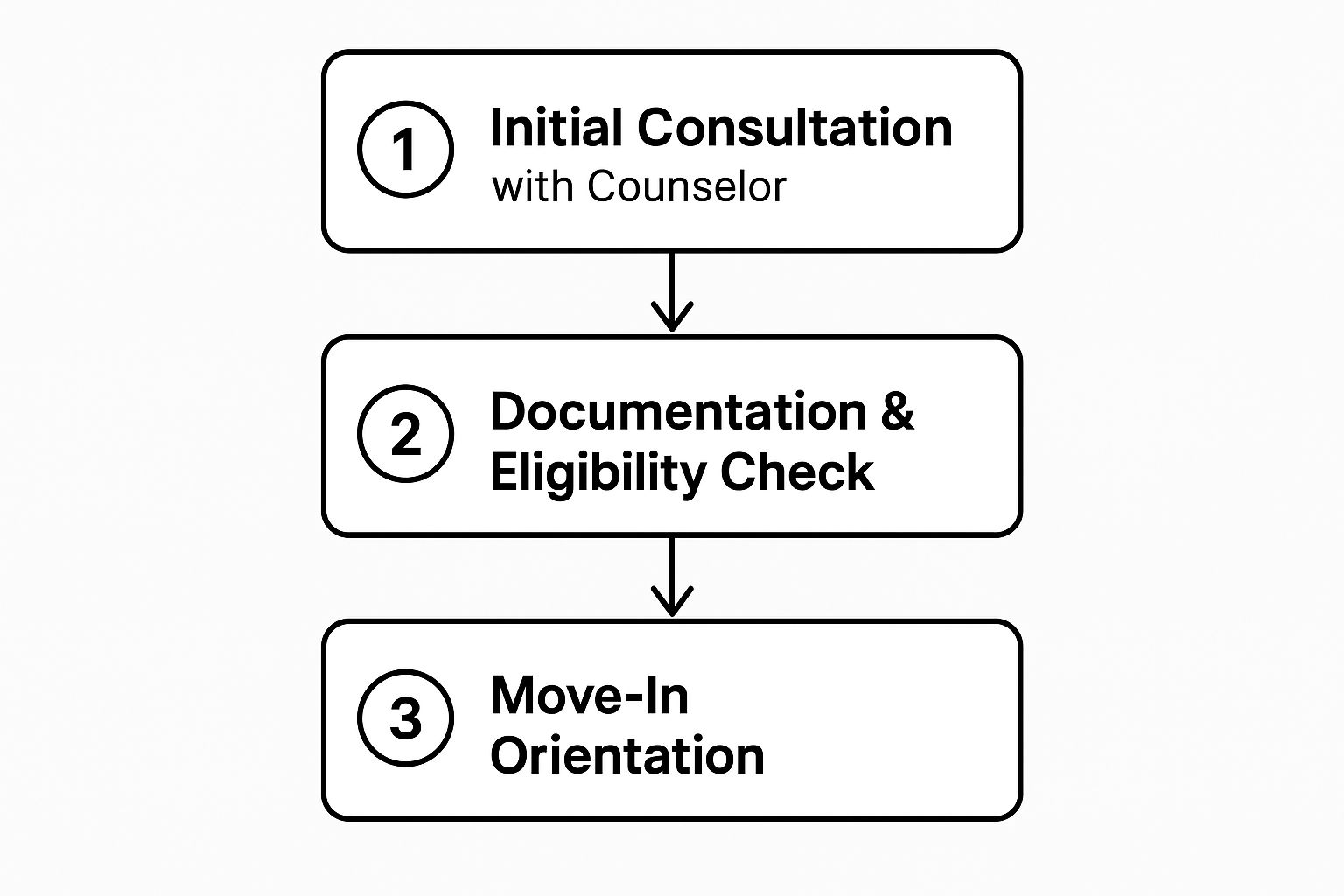
This clear, organized path from consultation to orientation ensures both you and the home are confident it's the right fit before you even unpack.
Preparing for Your Move
With a move-in date on the calendar, it's time to get ready. Packing for sober living is an exercise in intentional minimalism. You’re not just moving your stuff; you’re moving your focus. Bring only what you need to heal.
What to Pack:
- Comfortable clothing for about 7-10 days
- Your essential toiletries and any prescription medications
- Important documents like your ID and insurance card
- Recovery books, a journal, and a pen
What to Leave Behind:
- Anything containing alcohol (check your mouthwash, cologne, and aftershave)
- Expensive electronics or irreplaceable valuables
- Way too much clothing or other clutter that can create stress
This is more than just a physical move—it requires mental and emotional prep, too. You’re about to share a home with other people on their own recovery journeys, which demands patience, respect, and great communication. This is the perfect time to start thinking about setting boundaries in recovery—a skill that will be invaluable both inside the house and out in the world.
Show up with an open, cooperative mindset. It will make all the difference as you settle in and start making the most of this new chapter.
Common Questions About Sober Living

Exploring options for "sober living near me" is a huge step, and it naturally comes with a lot of questions. It's a big decision, and getting clear, straightforward answers is the best way to move forward with confidence.
We hear the same questions come up again and again from people just like you. To make your search a little smoother, we’ve put together honest answers to the most common ones we get.
Is Sober Living the Same as Rehab?
This is probably the most frequent point of confusion, and the short answer is no. While they are both critical pieces of the recovery puzzle, they play very different roles. Think of a clinical rehab or treatment center as the place for intensive medical and therapeutic care—it's where you safely detox and start digging into the root causes of addiction with professional guidance.
A sober living home is the next practical step. It’s a structured, substance-free residential setting where you start putting the skills you learned in rehab to the test in a real-world environment, but with a strong safety net of community support.
Here’s a simple way to think about it:
- Rehab is like the hospital where you go to heal from a major injury.
- Sober living is the physical therapy that comes after, where you rebuild your strength and learn how to navigate daily life safely again.
How Long Do People Usually Stay?
There's no magic number here. The length of a stay is completely individual and really depends on a person’s progress, needs, and what they’re working toward.
Some residents might stay for three to six months while they get back on their feet with work or mend family relationships. Others find that a year or more in that structured environment gives them the rock-solid foundation they need for lasting sobriety. The goal is to stay as long as it takes to feel truly secure in your recovery before moving on to full independence.
The best sober living environments aren't just temporary housing; they are communities built to foster personal responsibility, peer support, and a gradual, confident return to independent life. It’s about building a new life, not just putting distance between you and a substance.
What Happens if Someone Relapses?
Every reputable sober living home has a clear, compassionate, and firm protocol for relapses. The number one priority is always protecting the safety and sobriety of every single person in the house. This means that if a resident uses substances, they are typically asked to leave the home immediately to prevent triggering others or compromising the safe environment.
But this isn't about punishment. A good house manager will immediately connect that person with resources, often recommending a return to a higher level of care like detox or an inpatient program. The door is almost always open for them to come back once they've stabilized and re-established their sobriety. It's a system built on both accountability and unwavering support for the entire community.
Navigating all these details is so much easier when you have an experienced guide. At Altura Recovery, we partner with high-quality, vetted sober living homes across the Houston area to ensure our clients have a safe and supportive place to continue their journey. Let us help you find the right fit. Visit https://www.alturarecovery.com to learn more.


